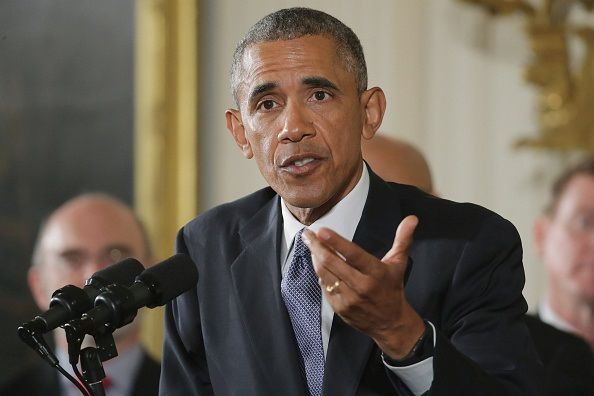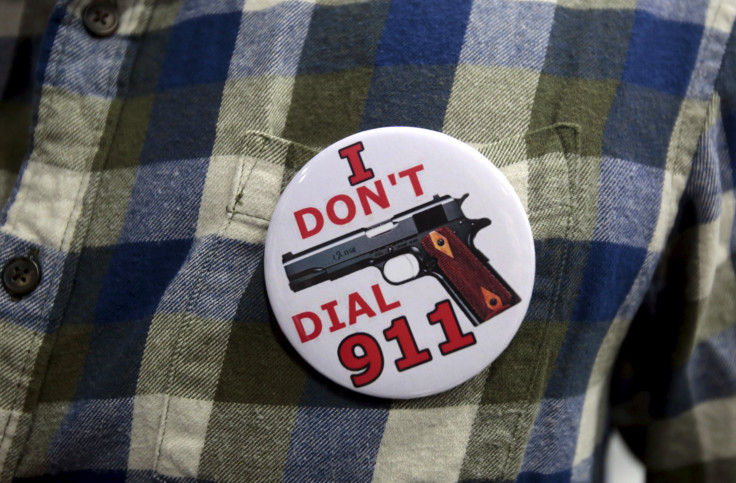Is Obama Trying To ‘Take Our Guns Away’? How New Gun Policies Would Work

President Barack Obama’s new executive actions on gun control unveiled Monday have been met with a mix of applause and defiance. Former Florida Gov. Jeb Bush warned that Obama is trying to "take rights away from law-abiding citizens," while Texas Gov. Greg Abbott tweeted, "COME & TAKE IT." But can the president’s executive actions actually take away people’s guns? Not quite. Here’s how the new gun control policies, which are aimed at curbing the illegal sale of guns, would actually work.
Background checks would be expanded and strengthened. In an attempt to make the background check process, which has long been criticized for letting people slip through the cracks, more effective and efficient, the FBI is expected to hire at least 230 additional workers to go through background checks 24/7.
One of the new provisions regarding background checks would revise licensing requirements for those who sell firearms. Those who sell even just occasionally will still have to obtain a license from the Bureau of Alcohol, Tobacco, Firearms and Explosives. "It doesn’t matter where you conduct your business — from a store, at gun shows, or over the internet: If you’re in the business of selling firearms, you must get a license and conduct background checks," reads the White House fact sheet on the topic.
Background checks are also going to be required for people who try to buy weapons through entities like corporations. Since the year 2000, a growing number of people have sought to buy weapons through these kinds of legal entities, the White House has noted. Now, the Bureau of Alcohol, Tobacco, Firearms and Explosives is finalizing a rule to ensure that buying guns or other weapons through such structures would not allow buyers to skirt background checks.
Another part of the executive actions focuses on improving reporting the identities of people disqualified from purchasing firearms on the basis on criminal records, domestic violence or mental illness. U.S. Attorney General Loretta Lynch wrote a letter to states to encourage them to report relevant and necessary records to a national database, so that it would be as comprehensive as possible.

The National Instant Criminal Background Check System (NICS) is the system that firearms sellers use to check whether a prospective buyer is actually eligible to buy a gun or explosive. But the system is rife with flaws and loopholes that have allowed people who should not have been able to buy guns in the first to purchase them nonetheless, such as Dylann Roof, who in June shot and killed nine black churchgoers in Charleston, South Carolina. Roof had purchased a gun thanks to a lapse in local and state reporting to the background check system.
Another section of the executive actions devotes $500 million to improve access to treatments for mental illness. The Department of Health and Human Services also clarified Monday a rule regarding how those disqualified from buying guns on the basis of mental illness can be reported to NICS without violating privacy rights. There would be "zero federal legal barriers to states reporting relevant mental health information" to the database, the White House said Monday.
The White House also said it would push for increased enforcement of current gun laws. If guns are stolen from dealers or lost, for instance, dealers are supposed to notify law enforcement, but until now, those regulations have been "ambiguous," the White House said. Under the new policy, even if a gun is lost in transit, the dealer or licensee must notify law enforcement.
Every year, more than 30,000 Americans are killed by guns, according to statistics provided by the White House. Obama is scheduled to join a televised town hall meeting Thursday at George Mason University in Fairfax, Virginia, to discuss gun control.
© Copyright IBTimes 2024. All rights reserved.





















